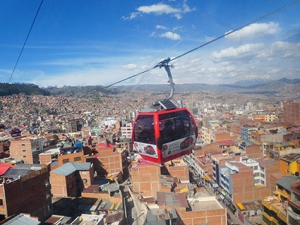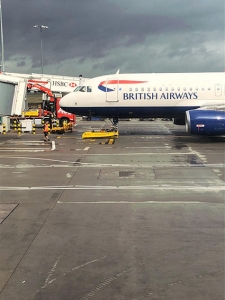
We are still some way off understanding what the new normal will be. Rather we are in a transition zone which has the characteristics of an amoeba! There are some signs of joined up thinking. Taking timely constructive action may prove elusive as a post lockdown exploration. Seems to me determining the trajectory of Covid19 remains as tricky as ever. And the discovery of an effective vaccine is months away.
STOP PRESS 16 JUNE
IATA delivered an update on bookings and passenger intentions: “Public opinion research in the first week of June 2020 showed greater caution among travelers in returning to travel. Only 45% of travelers surveyed intend to return to the skies within a few months of the pandemic subsiding. A further 36% said that they would wait six months. That is a significant shift from April 2020 when 61% said that they would return to travel within a few months of the pandemic subsiding and 21% responded that they would wait about six months.
The survey findings are corroborated in key passenger trends demonstrating continuing market uncertainty:
- Overall bookings are down 82% year-on-year compared to June 2019.
- Long-haul forward bookings for the first week in November 2020 are 59% below normal levels. Historical trends show about 14% of airline tickets are sold 22 weeks in advance of travel. Current bookings for 1-7 November show that tickets have been sold to only 5% of the 2019 number of passengers.
- Passengers are booking closer to the time of travel. Bookings for travel 20 or more days in the future accounted for 29% of bookings made in May 2020, down from 49% in 2019. Similarly, 41% of bookings made in May 2020 were for travel within 3 days, more than double the 18% in May 2019”.
However, who knows! So, start planning. Take the time to fully research every aspect of a proposed trip…and keep on checking! These days things can change just before and during your journey. Do not make assumptions based on prior experience. Seek the guidance of experienced travel agents and travel operators.
INSURANCE
Which? (12 June)- about as independent as you can get – “is currently unaware of any travel insurance policies that will cover any coronavirus-related claims except for emergency medical treatment. But for as long as the FCO’s advice remains in place, many policies won’t cover you for anything if you choose to travel”.
NEW FCO GUIDANCE FOR CAMBODIA TRAVEL
“The government is now imposing charges on foreign arrivals. This includes lab testing, medical treatment, and accommodation under health measures to prevent a second wave of COVID-19 transmission in Cambodia.
All foreign passengers are required to deposit US$3000 for the COVID-19 service charges at the airport upon their arrival. Once deductions for services have been made, the remainder of the deposit will be returned. This is can be paid either by cash or credit card.”
Probably not in anyone’s top ten list for the moment…
WHAT GOES DOWN MUST GO UP!

IATA (03 June) believes demand for air services is beginning to recover after hitting rock bottom in April. Passenger demand in April (measured in revenue passenger kilometers or RPKs), plunged 94.3% compared to April 2019, as the COVID-19-related travel restrictions made their impact.
“More recently, figures show that daily flight totals rose 30% between the low point on 21 April and 27 May. This is primarily in domestic operations and off of a very low base (5.7% of 2019 demand). While this uptick is not significant to the global dimension of the air transport industry, it does suggest that the industry has seen the bottom of the crisis, provided there is no recurrence. In addition, it is the very first signal of aviation beginning the likely long process of re-establishing connectivity”.
“April was a disaster for aviation as air travel almost entirely stopped. But April may also represent the nadir of the crisis. Flight numbers are increasing. Countries are beginning to lift mobility restrictions. And business confidence is showing improvement in key markets such as China, Germany, and the US. These are positive signs as we start to rebuild the industry from a stand-still. The initial green shoots will take time—possibly years—to mature,” said Alexandre de Juniac, IATA’s Director General and CEO.
IATA calculated that by the first week of April, governments in 75% of the markets tracked by IATA completely banned entry, while an additional 19% had limited travel restrictions or compulsory quarantine requirements for international arrivals.
Of course, here in the UK, our Government didn’t do that until this month!!! Late for the party yet again!
Stats from Eurocontrol compare current air traffic with the same period in 2019: 7,232 flights on 10 June 2020, down 79.5 % in 2019.
Busiest airports – movements per week:
Paris CDG 298
Istanbul 286
Frankfurt 277
Amsterdam 254
London Heathrow 241
Oslo 221
Busiest airlines – movements per week:
Turkish Airlines 299
Widerøe 245 *
Lufthansa 164
SAS 146
Air France 138
KLM 127
*The largest regional airline operating in the Nordic region
AIRLINE RESPONSES Post lockdown exploration

Lufthansa’s response is fairly typical of the big global carriers. The group says six of its 14 Airbus A380s – originally due to be returned in 2022 – will now be “permanently decommissioned” alongside seven A340-600s, five 747-400s, and 11 Lufthansa-operated A320s because of the coronavirus crisis.
Explaining the moves, Lufthansa says: “It will take months until the global travel restrictions are completely lifted and years until the worldwide demand for air travel returns to pre-crisis levels.”
Air France has rolled out a revised schedule utilising 106 aircraft of the 224 strong fleets. The nine A380s will not be returning. The new schedule anticipates the capacity to be up to 60% of ‘normal” utilisation.
Inevitably reductions such as these will deal a hammer blow to airline staff at all levels and locations. Air Canada has announced 16,500 temporary layoffs with American due to communicate in July what may be a 30% headcount reduction.
Stuart McAdam
TheMcAdamee ~ Post lockdown exploration ~